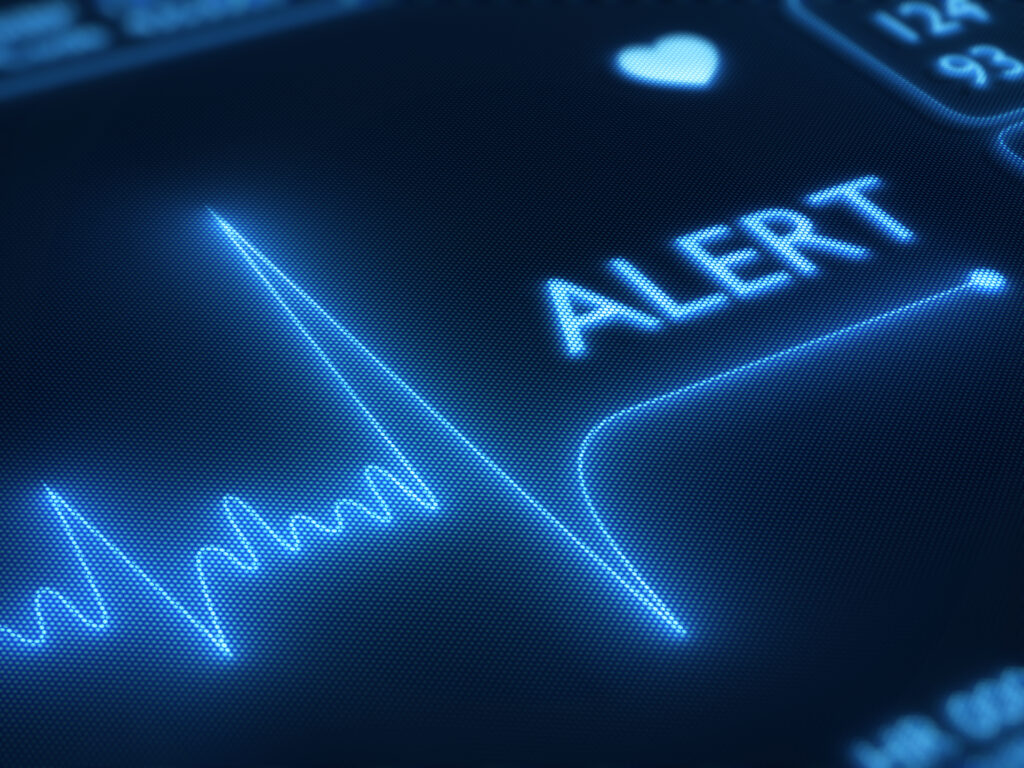Despite its astonishing prevalence of one in three people in the UK, many people struggle with the diagnosis of high blood pressure, or hypertension. It’s worth exploring why, because being an active participant in your care is crucial for optimal blood pressure control.
Any diagnosis is made easier to accept by certain characteristics:
- First of all, if a person exhibits symptoms, they are more inclined to accept a diagnosis. A patient who has a fever and cough will accept a pneumonia diagnosis. However, a healthy person wouldn’t.
- Next, if a diagnosis is not serious, people will accept it more easily. Since treatments are available to treat athlete’s foot, most people won’t contest the diagnosis. Receiving a diagnosis with a poorer prognosis is typically more difficult.
- Lastly, knowing the origin of a diagnosis helps people accept it more readily. Certain illnesses, such Down syndrome and older mothers, HIV infection and tainted needles, have obvious causes. When a smoker gets diagnosed with lung cancer, he might not be alarmed. When non-smokers are given this diagnosis, they typically wonder, “Why me?”
When someone is diagnosed with hypertension, they frequently wonder, “Why me?” Given the aforementioned principles, this doubt seems reasonable. Symptoms lend credence to a diagnosis. On the other hand, hypertension seldom ever manifests symptoms. Indeed, it is menacingly referred to as the “silent killer.” When their blood pressure reaches dangerous levels, some people have headaches; for others, however, hypertension may remain unnoticed until it culminates in a fatal heart attack. Thankfully, taking a blood pressure reading is simple and painless.
Upon diagnosing hypertension, medical professionals often accompany the diagnosis with severe problems. Heart attack, renal failure, and stroke are a few of these. While discussing dangers with patients, doctors can wind up inciting fear instead of motivation. And denial might result from fear. Is high blood pressure a dangerous condition? In that case, no, if untreated. However, the dangers are significantly decreased with blood pressure control. The key takeaway is that managing hypertension can significantly lengthen life expectancy and avert serious consequences.
Finally, it is useful to know the cause of a condition. Actually, it’s unusual that we identify a single aetiology for hypertension in people. Almost always, a number of elements are involved. Certain causes, like age and heredity, are unavoidable. Blood pressure is frequently inherited. Complex genetic risk most likely arises from a mix of deleterious mutations in risk genes and silencing of protective genes. Just as we cannot stop ageing, there is nothing we can do to alter our genetic makeup. Systolic blood pressure, or the top number, and the risk of heart disease are universally higher as one ages. However, addressing modifiable risk factors for high blood pressure, such as increasing physical activity and decreasing weight, frequently results in positive outcomes.
You have a high chance of developing high blood pressure in your lifetime
It helps to know the facts in order to respond to the question, “Why me?” A subgroup of 1,300 people between the ages of 55 and 65 who did not have hypertension at baseline were monitored in the Framingham Heart Study. Their astounding discovery was that there was a 90% lifetime chance of hypertension. Therefore, there’s a 90% probability that you will eventually acquire high blood pressure even if it hasn’t happened to you by middle age. The fact that more people are overweight and living longer is probably the reason for this high number.
Therefore, it makes more sense to be amazed if you never get hypertension than to be shocked if you are diagnosed with it. Positively, there has been a decrease in the incidence of severe hypertension. This decrease is a result of improved care. Therefore, accepting your diagnosis of high blood pressure is the most crucial thing to do. Being committed is the first step towards excellent blood pressure control, as hypertension cannot heal itself.
But what are the risks of hypertension?
Well, to begin with high blood pressure is responsible for more than half of all strokes and heart attacks. High blood pressure is also a risk factor for heart disease, kidney disease and vascular dementia. Each 2mmHg rise in systolic blood pressure is associated with a 7% increased risk of death from coronary heart disease and a 10% increased risk of death from stroke.
Heart attacks are often depicted on television in a dramatic way, with an elderly guy gripping his chest in excruciating pain. Although this mental image is deeply ingrained in our culture, it only accurately depicts a small portion of heart attacks. It turns out that a heart attack can cause a wide range of symptoms. A heart attack can also cause other symptoms, such as arm, neck, jaw, chest tightness, chest heaviness, shortness of breath, perspiration, intense weariness, dizziness, and nausea, in addition to chest pain. This partially explains why diagnosing a heart attack isn’t always simple. Naturally, women are also susceptible to heart attacks, however there hasn’t been a 100% consensus if women are more or less susceptible than men.
Atherosclerosis Risk in Communities (ARIC) Study data now shows that nearly half (45%) of heart attacks seem to be clinically silent, meaning they don’t seem to be accompanied by any symptoms at all, at least not that the patient can remember. The diagnosis of these quiet heart attacks was made using a standard electrocardiogram (ECG). Furthermore, these quiet heart attacks were more than just a test-related anomaly with no real significance. The risk of death that followed silent heart attacks was comparable to that of heart attacks that were clinically recognised.
Previous research had essentially produced identical results. These findings were expanded upon in the current study to include a far wider range of people. It was shown that both men and women had an increased risk of silent heart attacks. Notably, men experienced both types of heart attacks at higher rates than women. Both clinical and silent heart attacks were related with an increased risk of death in the future in patients who were African American and White. Although the results would probably be comparable, other races were not looked at in this study, and more research in this area is necessary.
Future research must ascertain whether frequent monitoring for silent heart attacks might be beneficial for particular populations. In addition to studies conducted within the realm of traditional medical research, consumers will be able to obtain their own ECGs thanks to the growing number of applications available, which will likely lead to a rise in the diagnosis of silent heart attacks. This kind of indiscriminate screening carries the danger that an abnormal test result could trigger the need for additional, riskier, and costly testing. Thus, maybe over the next few years, we may be able to determine who would benefit most from routine ECG screening or from more advanced tests that identify silent heart attacks or those who are at risk for them.
Keeping on top of your wellbeing with Echelon Health
So, while we understand that hypertension is not the worst condition and can be managed with lifestyle changes and medication, if left unchecked it can spiral into very serious illnesses or even death. As such, at Echelon Health we aim to do our best to check your health as thoroughly as possible.
Measuring your blood pressure is part of our flagship Platinum Assessment, and if you have an elevated rate on the day it will be noted and dealt with accordingly – repeat check another time and tracking when necessary. Of course, it wouldn’t be the flagship assessment if that is all it consisted of.
Echelon Health’s Platinum Assessment is best equipped at detecting various diseases. In fact, with the Platinum Assessment, we are able to detect up to 92% and 95% of the preventable causes of death among men and women respectively.
The full list of scans that are included in the Platinum Assessment is as follows:
- Medical Questionnaire
- Blood Test
- ECG
- CT Aorta
- CT Heart
- CT Coronary Angiogram
- CT Chest
- CT Pelvis
- CT Virtual Colonoscopy
- CT Bone Density
- EOS
- CT Upright Skeleton
- MRI Brain
- MRI Cerebral Artery Angiogram
- MRI Carotid Artery Angiogram
- MRI Prostate
- Ultrasound Thyroid
- Ultrasound Testes/Ovaries
- Digital Mammogram
- Full Body Mole Screen
- Final consultation
By choosing a reputable provider like Echelon Health you gain access to cutting-edge technology and the power of early detection. Early intervention can significantly improve outcomes for various diseases, ensuring a higher quality of life.
If you have any questions, please don’t hesitate to contact our team! We will be delighted to help.
Sources:
https://www.bloodpressureuk.org/news/media-centre/blood-pressure-facts-and-figures/
https://www.nhlbi.nih.gov/science/framingham-heart-study-fhs
https://www.ahajournals.org/doi/10.1161/CIRCULATIONAHA.115.021177



